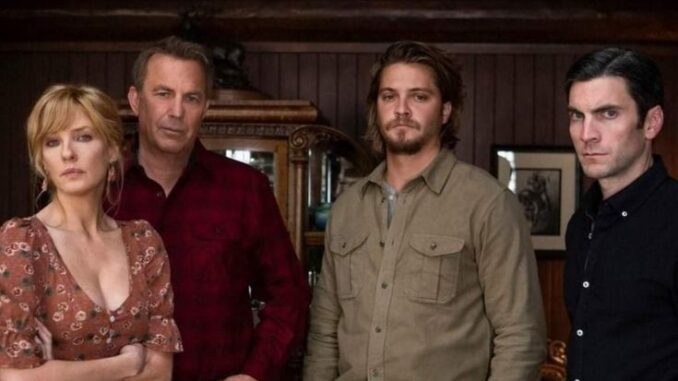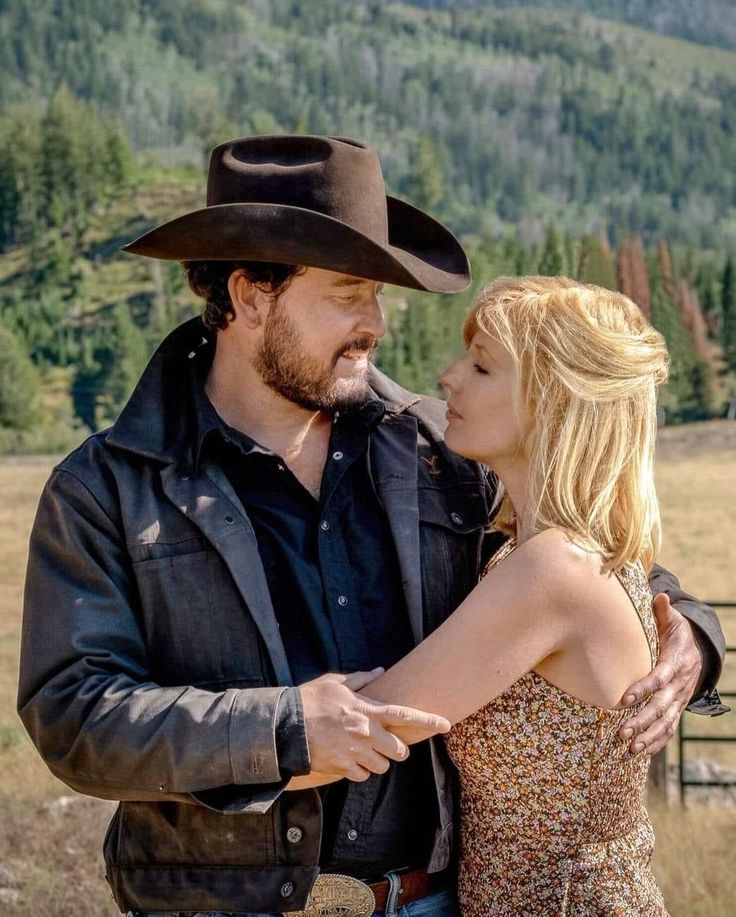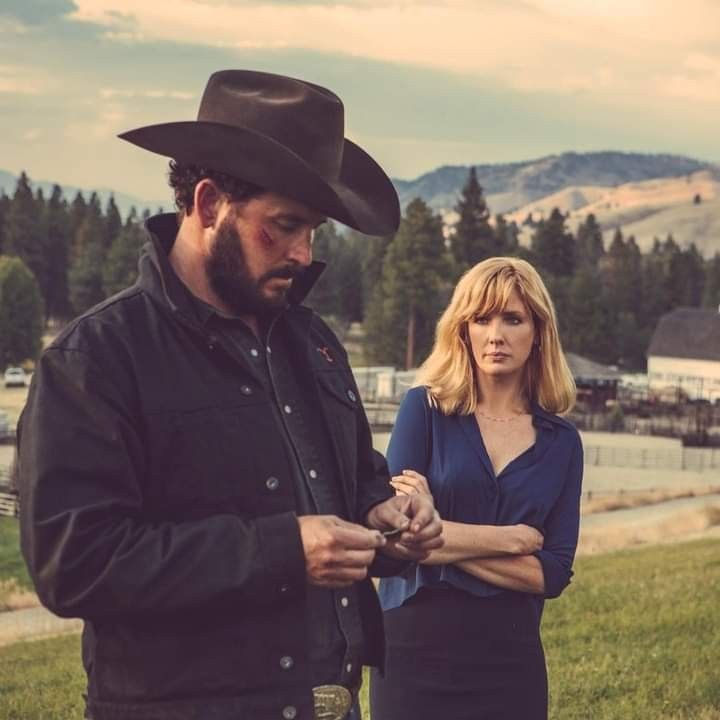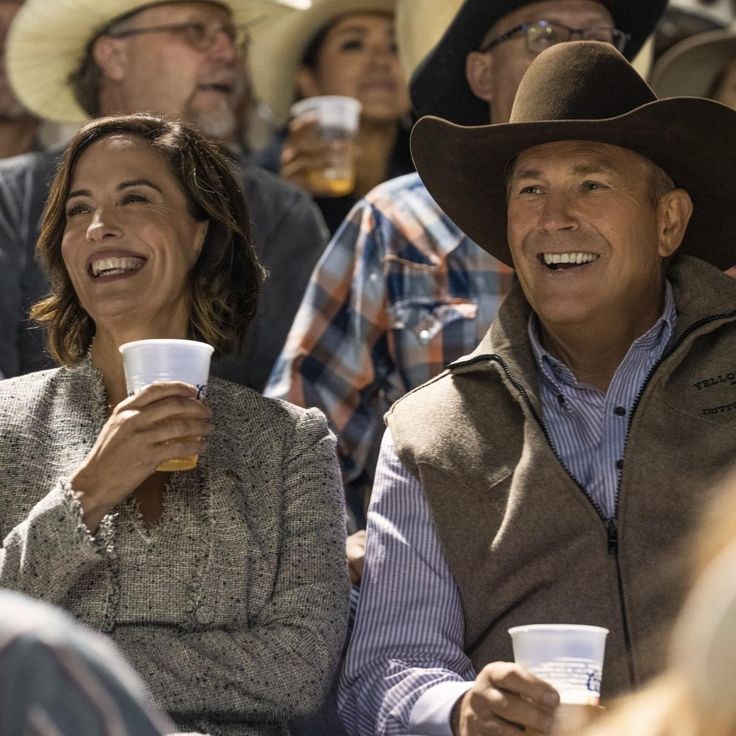
When Yellowstone first hit the small screen, many wondered if a big Hollywood star like Kevin Costner could transition successfully into the world of TV. Would audiences accept a TV series led by a film legend? Would the show capture hearts or fade into the crowded television landscape? Surprisingly, Costner himself wasn’t worried about any of it. In fact, he was confident. But why?
In this article, we’re diving deep into why Kevin Costner was unfazed by Yellowstone’s transition to television, exploring the show’s unique appeal, Costner’s career mindset, and the ingredients that made Yellowstone a standout hit.

Kevin Costner and Yellowstone — A Perfect Match From The Start
Kevin Costner’s Hollywood Legacy Set the Stage
Kevin Costner is no stranger to playing rugged, commanding characters—his roles in classics like Dances with Wolves and The Bodyguard cemented his place in Hollywood. So stepping into the role of John Dutton, the patriarch of the powerful Yellowstone Ranch, felt natural.
But what really set the stage for Costner’s calm attitude? His decades of experience in film gave him confidence that a strong story and character-driven content would resonate, no matter the medium.
Why TV? Costner’s Vision for Yellowstone
In an era where TV and streaming platforms dominate entertainment, Costner saw an opportunity rather than a challenge. He recognized that TV could deliver complex storytelling and character development in ways films sometimes couldn’t.
Yellowstone wasn’t just a show; it was a sprawling narrative that deserved a broad canvas. Costner believed the series could reach new audiences and explore themes in depth, giving him a fresh creative playground.
The Unique Appeal of Yellowstone That Reassured Costner
Authentic Western Roots with a Modern Twist
Yellowstone taps into the timeless allure of the American West—rugged landscapes, family legacies, and power struggles—while tackling contemporary issues like land rights and political corruption.
Costner’s familiarity with Western themes gave him a deep connection to the project, and he knew audiences craved that authenticity. The show wasn’t just a drama; it was a love letter to a fading way of life.
Family Drama at Its Core
At the heart of Yellowstone lies the Dutton family—a powerful, complex clan grappling with loyalty, betrayal, and survival. This family dynamic made the show relatable, hooking viewers beyond the cowboy hats and horses.
Costner saw this as a winning formula: mix raw human emotion with epic settings, and you’ve got a show that feels both intimate and grand.
Cinematic Quality Meets Television
The production values of Yellowstone rival those of big-budget films. Sweeping shots of Montana’s landscapes and detailed set designs gave the show a cinematic feel.
Costner, a seasoned film actor and director, was comfortable with this approach. He knew viewers would be drawn into the visually stunning world, making the TV format a strength, not a limitation.
Kevin Costner’s Career Mindset: Why He Was Unfazed

A History of Risk-Taking in His Career
Costner’s career is marked by smart risks—from directing his own films to starring in unconventional projects. He’s never been afraid to challenge the status quo, and Yellowstone was no different.
He embraced the challenge of TV as a new frontier, confident in his ability to adapt and shine in a changing entertainment landscape.
Belief in Quality Storytelling
At the core, Costner believes that quality storytelling will always win. He understood that Yellowstone’s gripping plotlines and layered characters would captivate audiences, regardless of the platform.
This belief kept him calm, even when TV series often struggle to find footing in today’s competitive market.
The Showrunner’s Role: Taylor Sheridan’s Impact
A Visionary Behind the Scenes
Taylor Sheridan, Yellowstone’s creator, brought a bold, cinematic style to the show. His writing blends grit with beauty, perfectly complementing Costner’s performance.
Costner trusted Sheridan’s vision, which gave him further assurance that the project was in good hands.
Collaborative Synergy Between Costner and Sheridan
Their partnership created a powerful dynamic—Costner’s seasoned acting and Sheridan’s sharp writing created an irresistible blend. This synergy was a key factor in why Costner wasn’t worried about the show’s success.
Audience Reception and the Growing Popularity of Yellowstone
Word of Mouth and Social Media Buzz
From the beginning, Yellowstone generated buzz through social media and word of mouth. Fans praised Costner’s commanding performance and the show’s intense storytelling.
This grassroots support gave Costner confidence that the show would thrive and reach a wide audience organically.
Ratings That Defied Expectations
Yellowstone quickly became one of the highest-rated cable shows, proving Costner’s instincts right. The show’s success story reassured the actor that his faith in the project was well-placed.
Why Kevin Costner’s Confidence Can Teach Us About Embracing Change

Adaptability is Key in the Entertainment Industry
Costner’s calm about Yellowstone shows how adaptability can be a huge advantage. Embracing new formats like TV or streaming instead of resisting change opens doors to fresh opportunities.
Trusting the Story and the Team
He also teaches us to trust the story and the people involved. Believing in your project and collaborators is crucial when stepping into unknown territory.
Conclusion: Kevin Costner’s Calm Was the Right Move
Kevin Costner’s lack of worry about Yellowstone being a TV show wasn’t blind confidence—it was rooted in experience, trust in quality storytelling, and belief in the creative team. The result? A groundbreaking series that redefined what a TV Western could be.
His story is a reminder that with the right mindset, embracing new formats can lead to incredible success—even if it means stepping outside your comfort zone.
